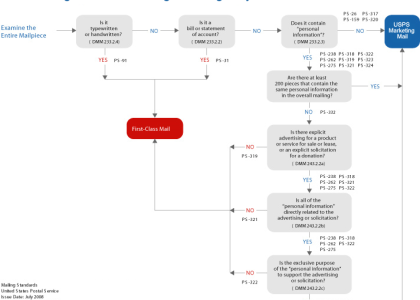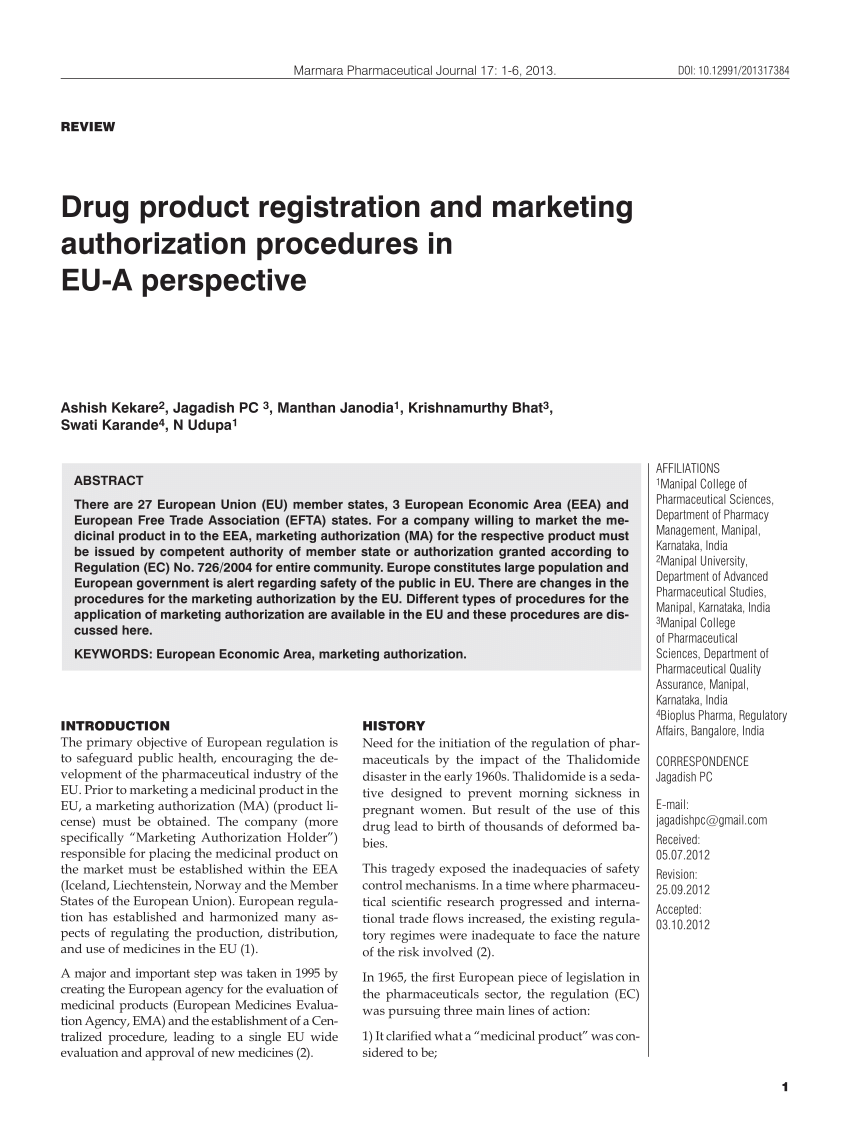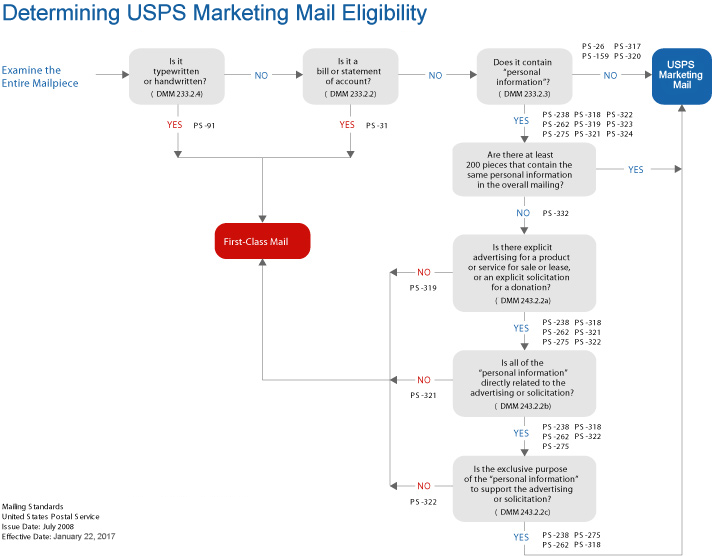Every business in today’s remarkable digital domain thrives on robust marketing strategies. To execute these strategies, organizations rely on a dedicated and dynamic marketing team. Often, the team enlists the help of passionate learners, or marketing interns, who contributes significantly towards achieving marketing objectives. Therefore, understanding the part a marketing intern plays and the tasks they have to accomplish is important.
Apart from academic qualifications, the real-world experience that internships provide to students is invaluable. Internships offer students an opportunity to apply their theoretical knowledge in real-world situations, learn the ropes from industry veterans, and grow their professional network. A marketing intern, in particular, plays a vital role in any organization as they assist in tasks that underpin the company’s overall marketing strategy.
However, it’s not always clear what a marketing intern does on a day-to-day basis. There often seems to be a cloud of ambiguity surrounding the tasks they are expected to carry out. This write-up aims to demystify the role and responsibilities of a marketing intern, providing budding marketers a glimpse into the world of internships. By the end, you will have a comprehensive understanding of how a marketing intern supports and contributes to the overall goals of the marketing team.
Delving into the Fundamentals of an Internship in Marketing
Embarking on a journey as a marketing intern is an essential stepping stone for aspiring marketers, providing them with hands-on exposure to the field. The scope of an intern in the marketing sector is vast, touching on various tasks and responsibilities that span across many dimensions. This position serves as a unique opportunity that straddles the border between academic learning and practical expertise.
A marketing intern’s role is underpinned by several key responsibilities, which may vary based on the nature of the organization. This may include tasks such as creating content for promotional campaigns, conducting market research, analyzing customer behaviour, data entry, and more. Additionally, the intern may also lend support in the ideation and execution of marketing strategies.
Common Tasks of an Intern in Marketing:
- Content creation: Developing compelling content for various marketing channels like websites, social media, and email newsletters.
- Market research: Studying and diagnosing market trends and consumer behaviour to provide input for marketing plans.
- Data analysis: Using software tools to analyze marketing data and generate reports to evaluate the performance of marketing campaigns.
- Administrative support: Assisting with marketing administrative tasks such as scheduling meetings, communicating with clients, etc.
It is worth noting that the role of a marketing intern is not confined solely to the tasks assigned. The intern also serves as a valuable contributor to the team, bringing fresh perspectives and innovative ideas. This position is an opportunity to gain significant insights into the marketing sphere, preparing them not only to imbibe theoretical knowledge but also to develop essential soft skills such as team-work, communication and critical thinking.
Position and Responsibilities of a Marketing Intern within a Corporate Structure
The duties and impact of a marketing intern within a business structure cannot be understated. They are pre-professional team members who are still advancing their knowledge and skill in the field of marketing through practical experience.
In most cases, the intern’s responsibilities revolve around supporting marketing campaigns and initiatives. They are crucial cogs in the machine and have a vital part in tasks such as creating and implementing marketing strategies, market research, and data analysis. Their input aids in identifying potential markets and evaluating methods to reach them.
Often, one of the prime responsibilities would be content creation. This includes designing and crafting content for social media, blogs, newsletters, and other marketing materials, further aiding the organization’s digital footprint. Their fresh perspective and novel ideas often bring a breath of fresh air to the organization’s marketing strategy.
Daily Tasks of a Marketing Intern
- Analyze and create reports on marketing data.
- Assist the marketing team in the development and implementation of marketing campaigns and strategies.
- Create engaging content for the Company’s social media platforms and blogs.
- Assist in planning and hosting marketing events.
- Conduct market research to identify potential markets and strategies to reach them.
Being part of such a dynamic field allows interns the chance to cultivate a multitude of skills and offers them incredible exposure to the field of marketing. By executing various tasks, the marketing intern plays a key role in driving the marketing success of any business organization.
Key Tasks Typically Assigned to Interns in Marketing
The role of a marketing intern usually involves diverse responsibilities, all designed to strengthen their marketing skills and business acumen. While their specific tasks will often depend on the type of organization and the company’s sector, there are some standard responsibilities you can expect as an intern in a marketing department.
One of the major duties you may be tasked with is projecting support. In this capacity, you will be contributing to the planning, executing, and tracking marketing programs such as email, event, social media, or content marketing. Another principal duty will be analytical tasks. You may provide input and conduct market research, collect and analyze data to identify your target market’s preferences, habits, and consumer trends. These insights can help your team to craft more effective strategies.
Key Tasks for Marketing Interns
- Project Support: This often includes helping in the organization and coordination of marketing events, assisting with the creation of promotional materials, and supporting the team in their daily administrative tasks.
- Market Research and Analysis: Monitoring and forecasting marketing and sales trends, measuring the effectiveness of marketing programs and strategies, devising and evaluating methods for collecting data such as surveys, questionnaires, and opinion polls are typically part of your responsibilities as well.
- Social Media Management: Strong familiarity with major social media platforms and their best practices is often required as interns might be asked create and schedule posts, track analytics, and engage with audiences through these outlets.
- Content Creation: Writing and editing content, whether it be for a company blog, newsletters, or press releases, might be another key responsibility. This includes SEO optimization and adhering to a brand’s voice and style guide.
Undertaking these tasks, while challenging, offer the advantage of gaining a firsthand understanding of what it takes to run successful marketing campaigns. This experience can be invaluable for anyone looking to kickstart their career in marketing.
Key Abilities Needed to Thrive as a Marketing Apprentice
In order to excel in a marketing internship, there are a number of crucial abilities you will need to possess. These skills will not only improve your performance in your role, they will also prepare you for a future career in the marketing field.
Outstanding Communication Skills
First and foremost, communication is key. It lays at the heart of any marketing role, including internships. It’s not just about clearly conveying a message, but also about knowing when to listen and how to effectively process the information received. You should be comfortable in both written and oral communication, with a knack for adapting your tone and style to match the platform you’re using.
Teamwork and Collaboration
Besides being an excellent communicator, having the ability to collaborate with others is vital. In any company, you will be expected to work closely with different departments. Thus, being a team player who appreciates the ideas and contributions of others will bode well for your internship experience.
An Analytical Thinker
Another important skill is the ability to think analytically. This involves the capacity to understand and analyze market trends and consumer behavior. This will enable you to develop effective marketing strategies and make informed decisions.
Creativity
Creativity is also a critical attribute in the marketing world. It’s about being able to think outside the box, come up with unique ideas, and find innovative solutions to problems. This starts with an open mind and the curiosity to explore new ways of doing things.
Technical Savvy
Finally, a good knowledge of various digital marketing tools is highly beneficial. This includes SEO, social media platforms, content management systems, and various analytics tools. Familiarity with these platforms can give you a competitive edge over other candidates.
In conclusion, while these are just some of the key skills required for a successful marketing intern, continually developing and refining your skills will ensure your continued growth and success in this dynamic field.
The Significance of Effective Communication in an Internship in the Field of Marketing
Effective communication is a critical skill set of any individual aspiring to excel in the field of marketing. For those pursuing a marketing internship, it is vital as it can have a significant impact on their effectiveness and ability to contribute effectively to the team. In other words, communication is a crucial aspect that determines the overall value and growth an intern can bring to a marketing team.
Open and clear communication enables interns to quickly assimilate into their new environment, fostering a sense of belonging and comfort within the team. This, in turn, encourages them to ask questions when in doubt, discuss their ideas comfortably, and report their progress with confidence. Sharing thoughts through structured and well-articulated messages can also pave the way for interns to contribute novel ideas that could potentially benefit the company’s marketing strategy.
Marketing internships are often task-oriented and fast-paced. Interns are expected to frequently liaise with different departments, co-ordinating with numerous stakeholders simultaneously. An intern’s skill in maintaining efficient, professional, and respectful communication with peers, managers, and clients often determines the speed and quality of the tasks accomplished. Notably, this also aids in eliminating potential misunderstandings and ambiguities, ensuring that projects proceed smoothly and efficiently.
- Creating and Delivering Presentations: A marketing intern might have to create and deliver presentations which incorporate research findings, analytics, and strategic suggestions. A good understanding of communication can aid in presenting information in a logical, concise, and appealing manner, thereby influencing decision-making processes.
- Email Communication: An intern needs to draft and respond to numerous emails efficiently. Proficiency in written communication, thus, improves clarity and reduces time spent on follow-ups.
In conclusion, communication is a universal, valuable, and indispensable tool in a marketing internship. It doesn’t merely ease working in a team but also capacitates an intern to learn, absorb, contribute, and grow, by effectively facilitating the flow of information and ideas in the organisation.
Comprehending the Importance of Research in a Marketing Internship
The primary responsibility of a marketing intern, often overlooked but absolutely critical, is to conduct thorough, in-depth research. This specific task significantly contributes to the decision-making process and problem-solving strategies of the marketing team. Comprehending this duty is fundamental to understanding the essential role of a marketing trainee within a company’s marketing framework.
A crucial part of the competencies associated with a marketing intern revolves around hitting the books and scouring the internet to garner data relevant to the company’s current marketing strategies or objectives. This usually entails market research, competitor analysis, looking into current marketing trends, and understanding consumers’ needs and preferences.
Depth of Marketing Intern Research
In essence, market research is all about figuring out what the potential customers require, what they are drawn to and what might discourage them. The intern needs to develop a deep understanding of the consumer base, including their demographics, psychographics, buying pattern and behaviour.
Competitor analysis is another key area that falls under the umbrella of the marketing intern’s research duties. Knowing what the competition is up to, their strengths and weaknesses, successful campaigns, and their customer base will aid in fine-tuning a company’s own strategies.
Staying updated with the latest marketing and industry trends ensures the company isn’t left behind. The intern has to be aware of the shifts in marketing strategies and technological advancements. This covers areas like social media trends, SEO strategies, content marketing trends, and more.
- Market research: Understanding customer needs and wants
- Competitor analysis: Identifying rival strategies and customer base
- Trend analysis: Keeping in pace with the latest marketing trends
Thus, understanding that research isn’t just a mere task, but an integral part of a marketing intern’s role is vital for making the most of the internship opportunity. Also, the results obtained from the research are immensely beneficial for the marketing team to draw insights and plan effectively for future marketing initiatives.
How Digital Marketing and Social Media fall under the Domain of a Marketing Intern
An intern who wishes to excel in marketing is expected to play an imperative role in digital marketing and social media. With the world becoming increasingly digital, companies are searching for interns who can successfully work with new advertising platforms, analyze online customer behavior, and create engaging social media content.
Marketing interns help in driving digital marketing efforts. They are often tasked with assisting in content creation, which can include blog posts, social media updates, or website copy. Additionally, they may use tracking tools to monitor the effectiveness of various marketing campaigns and then uses this data to inform future efforts. Digital analytics give them the chance to understand the buying behaviors of customers that interact with their brand online, thereby helping to enhance the overall marketing strategy.
Moreover, social media is another dominant sphere for a marketing intern. Social media networks like Facebook, Instagram, and LinkedIn are powerful marketing tools, and having a marketing intern who knows how to navigate these platforms can boost a company’s online presence. Interns often get involved in content creation, scheduling regular posts, and engaging with followers to foster a sense of community and increase brand loyalty.
- Managing social media accounts.
- Developing and curating engaging content for social media platforms.
- Assisting in the creation and editing of written, video, and photo content.
- Tracking social media engagement to identify high-performing ideas and campaigns for scalability.
- Supporting marketing team members in organizing various projects.
In conclusion, marketing interns play a key role in a company’s digital marketing and social media strategy. While responsibilities may vary by company, the goal remains the same: to capture the attention of online consumers and improve the company’s digital visibility.
Managing and Organizing Events as a Trainee in the Marketing Field
The job of an intern in the field of marketing usually involves assisting in the planning, management, and execution of events. These tasks are crucial to create a significant and memorable impression on the target audience and potential customers.
One of the main responsibilities of interns in organizing events is helping in the development and planning stage. This involves researching venues, potential vendors, and sourcing key items necessary for the event. They may be required to gather pricing information, availability details, and contractual terms to aid in decision making.
Furthermore, the intern is often tasked with the logistical aspects of the event. This can include confirming arrangements with vendors and developing the event’s schedule. Moreover, they may also be responsible for coordinating the delivery and setup of items for the event such as banners, promotional materials, and equipment.
Practical Implementation
Working in team settings – The marketing intern often collaborates with other team members to ensure the event’s success. Whether it is coordinating with sales teams, communicating with graphic designers for creative inputs, or liaising with the PR team for media coverage, the intern plays a significant role within the team.
Functioning as a contact point – The intern usually functions as a primary contact point between the organization and external parties. They may have to interact with event attendees, sponsors, and special guests for coordination.
- Organizing parking and other logistical details
- Solving last-minute problems or emergencies during the event
- Post-event follow-ups, gathering attendee feedback, and preparing post-event reports
In conclusion, it is important to note that these diverse responsibilities provide marketing interns with hands-on experience in various aspects of event planning and execution – an essential part of marketing strategy. This not only helps them understand the practical applications of marketing concepts but also equips them with the necessary skills and knowledge for their future career growth in the marketing realm.
The Customer Service Role of a Marketing Apprentice
While serving as an intern in the field of marketing, a significant part of one’s role is interlinked with customer service. The involvement of these entry-level workers in customer service helps the business and provides valuable learning opportunities for them.
A marketing apprentice’s duties generally involve gaining hands-on experience in creating campaigns, assisting with market research, and interacting with customers directly or indirectly. The main focus in the context of customer service is to ensure the satisfaction of the end-users and clients.
Primary Responsibilities in Customer Service
Interaction with customers or client companies forms a significant part with the entry-level role in marketing. The marketing trainee typically helps handle customer inquiries. This can be executed through various channels such as emails, social media, in-person interactions, or even conducting satisfaction surveys. Any issues or complaints need to be escalated to the relevant seniors to ensure swift resolution.
Active Involvement in Campaign Development
In the process of campaign development, the novice marketer may play a crucial role in understanding the customers’ needs. This is done through market research, data analysis, and demographical studies. The gathered insights play a pivotal role in tailoring the campaign more appropriately, ensuring maximum customer appeal. The down-to-earth strategies formed with this input can significantly enhance customer satisfaction and establish a positive brand image.
Experience Gain for Future Growth
Working closely with customers allows the marketing intern to understand customer behavior, preferences, and pain points. This interaction offers ample learning opportunities and helps them become effective communicators. Their experience in customer service also equips them with the necessary skills to handle customer issues, inquiries, and feedback. These survival skills to navigate through real-world hurdles lay a strong foundation for their future growth in this dynamic field.
Contribution of Interns in Marketing Strategies
Interns are crucial for the successful execution of marketing strategies. Their indispensable involvement in marketing campaigns is an integral part of their role. They provide substantial support in diverse ways, notably, contributing fresh ideas, conducting research, and managing social media.
The Infusion of Fresh Ideas
Being generationally diverse, marketing interns bring a fresh perspective to the table. This diversity enhances innovation during brainstorming sessions, decision making, and the generation of competitive strategies. The novelty of their ideas often helps in the production of enticing marketing campaigns.
In-depth Marketing Research
Interns have a crucial role in researching marketing trends, consumer patterns, industry insights, and competitors’ strategies. This extensive research helps in understanding the market dynamics, aiding the creation and modification of marketing campaigns.
- Understanding Consumer Patterns: Interns can help in analyzing qualitative data from surveys, interviews, and focus groups, hence providing a deeper understanding of consumer behavior.
- Industry Insight: By assessing industry trends, interns contribute to the forecast of market direction. This knowledge allows the firm to stay ahead of the curve and craft competitive marketing campaigns.
- Competitor Analysis: The assessment and understanding of competitors’ strategies provide valuable insights, helping firms make informed decisions about their marketing campaigns.
Social Media Management
In today’s digital era, the profuse understanding and use of social media platforms among younger generations can prove beneficial for companies. Interns significantly contribute to building a strong online presence, managing social media strategies and producing quality content that aligns with the company’s branding and marketing objectives.
Exploring Future Avenues After A Tenure As A Marketing Apprentice
After gaining experience as a marketing trainee, tons of exciting career opportunities start to become viable. The field of marketing is vast, with a plenitude of routes accessible dependent on your specialized area of interest, skill set and passion. It does not matter if you love statistical analysis, content creation, or building relationships with clients, because the marketing sector has something for everyone.
One potential career path is in Digital Marketing. After understanding the intricacies of marketing strategies as an intern, you can shape up your career by becoming a Digital Marketer. This path involves optimizing search results, developing and managing websites, analysing data, and collaborating on promotional strategies. As everything continues to go digital, the value of Digital Marketers is hard to overstate.
Another option is to egress as Marketing Analyst. If numbers, analysis and prediction of market trends excite you, then this is a suitable path to consider. A Marketing Analyst conducts meticulous market researches, surveys customer preferences and statistical analysis to provide solutions that boost the sales and market presence of a company.
- Public Relations Coordinator: In this role, you’re tasked with managing the company’s reputation, which involves various marketing strategies to enhance the brand image.
- Social Media Manager: This role borrows from content creation and analytics to maintain a company’s social media platforms, engage with audiences, and develop promotional campaigns.
In the end, it is essential to remember that internship experience in marketing provides a robust foundation for any career progression in the industry. The skills developed, such as team collaboration, strategic thinking, and effectively communicating an idea, will serve you irrespective of the Marketing career route you ultimately pursue.
Frequently Asked Questions: What does Marketing Intern Job Description Template
What are the primary responsibilities of a marketing manager?
A marketing manager’s primary responsibilities include overseeing marketing operations, developing and implementing marketing and advertising strategies, conducting market analysis, and managing the marketing team to achieve the company’s marketing goals.
How do marketing techniques vary across different marketing platforms?
Marketing techniques vary across different platforms based on the audience, content format, and engagement methods. For instance, social media campaigns might focus on interactive and visual content, while traditional advertising may prioritize broader reach and brand messaging.
What should be included in a marketing intern job description sample posted on job boards?
A marketing intern job description sample should include duties like assisting in the management of marketing operations, supporting the marketing and advertising team, and helping with the execution of campaigns. It should outline job responsibilities, requirements like familiarity with marketing tools, and educational qualifications such as pursuing a degree in marketing.
What qualifications are typically required for someone looking to become a marketing intern?
To become a marketing intern, qualifications typically include pursuing or holding a bachelor’s degree in marketing or a related field, familiarity with basic marketing concepts, and skills like good communication and basic knowledge of social media and digital content creation.
What role does a marketing intern play in a marketing and advertising team?
A marketing intern plays a supportive role in a marketing and advertising team. Their duties often involve assisting with various marketing tasks such as preparing marketing proposals, helping in building social media campaigns, and providing administrative support under the supervision of a marketing manager.
What is the average salary for a marketing intern, and does it vary based on the level of experience?
The average salary for a marketing intern varies based on factors such as geographical location, the size of the company, and the intern’s level of experience and educational background. Internships may also be unpaid, particularly if they offer valuable professional experience and training.
What are some common marketing intern requirements in job listings?
Common marketing intern requirements in job listings include being enrolled in a marketing degree program or a related field, having basic knowledge of marketing principles, possessing excellent communication skills, and showing eagerness to learn and contribute to marketing campaigns.
How can an internship help a student or recent graduate expand their marketing skills and provide professional experience?
An internship can help students or recent graduates expand their marketing skills and provide professional experience by offering hands-on involvement in real-world projects. It allows them to apply theoretical knowledge, develop practical skills, and gain insights into the working environment and professional responsibilities in marketing.
What types of tasks might a marketing intern be responsible for?
Tasks a marketing intern might be responsible for include assisting in the creation and implementation of marketing strategies, conducting market research, supporting social media campaign development, participating in the creation of digital content, and performing administrative duties.
In what ways does supervision by a marketing manager benefit a marketing intern?
Supervision by a marketing manager benefits a marketing intern by providing guidance, mentorship, and feedback. It helps interns understand the nuances of professional marketing, align their work with the company’s marketing needs, and learn effective strategies and tactics in a real-world setting.
What are the key duties and responsibilities of a marketing professional?
The key duties and responsibilities of a marketing professional include developing marketing strategies, conducting market research, overseeing advertising and promotional activities, managing digital marketing efforts, and analyzing the effectiveness of marketing campaigns.
What constitutes good marketing in today’s business environment?
Good marketing in today’s business environment involves creating targeted and engaging content, understanding and meeting the needs of the consumer, leveraging digital channels effectively, and constantly measuring and adapting strategies based on performance analytics.
What should a marketing intern expect in terms of role and responsibilities in their position?
A marketing intern should expect responsibilities such as assisting in various stages of marketing campaigns, supporting the marketing and advertising team, conducting market research, helping with content creation and graphic design, and administrative tasks.
What qualities and skills must a marketing intern possess to join a dynamic team?
A marketing intern must possess qualities like eagerness to learn, strong communication skills, basic knowledge of marketing principles, familiarity with digital marketing tools and software, and an ability to work collaboratively in a team.
How do many marketing firms structure their internship programs?
Many marketing firms structure their internship programs to provide hands-on experience in various aspects of marketing, including planning, execution, and analysis of campaigns, under the supervision of experienced marketing professionals.
What are the typical stages of marketing campaigns that an intern might be involved in?
The typical stages of marketing campaigns an intern might be involved in include initial market research, planning and strategizing, content creation, execution of the campaign, monitoring and analytics, and post-campaign evaluation.
What should be included in a job brief for a marketing intern position?
A job brief for a marketing intern position should include a summary of the role, key responsibilities, required skills and qualifications, details about the work environment, and information about the learning opportunities the internship will provide.
What are some common job duties included in a marketing intern’s responsibilities?
Common job duties of a marketing intern include assisting in the development of marketing materials, supporting social media and digital marketing efforts, helping with event planning, conducting competitor analysis, and managing databases.
What should candidates expect during the hiring process for a marketing intern role?
During the hiring process for a marketing intern role, candidates should expect to submit a resume and cover letter, possibly complete a task or project related to marketing, attend an interview (or interviews), and provide references.
How can an internship in a marketing department help in building a career in advertising?
An internship in a marketing department can help build a career in advertising by providing real-world experience, allowing interns to apply theoretical knowledge, offering networking opportunities, and teaching practical skills like campaign development and client communication.


















